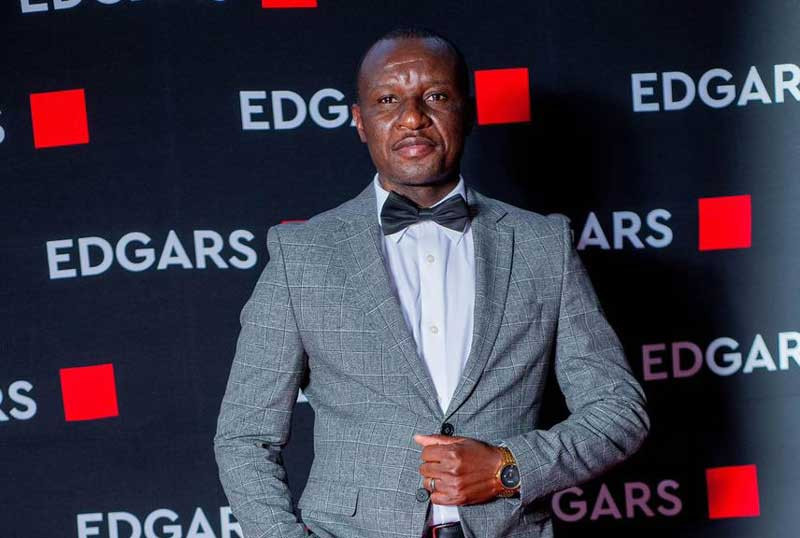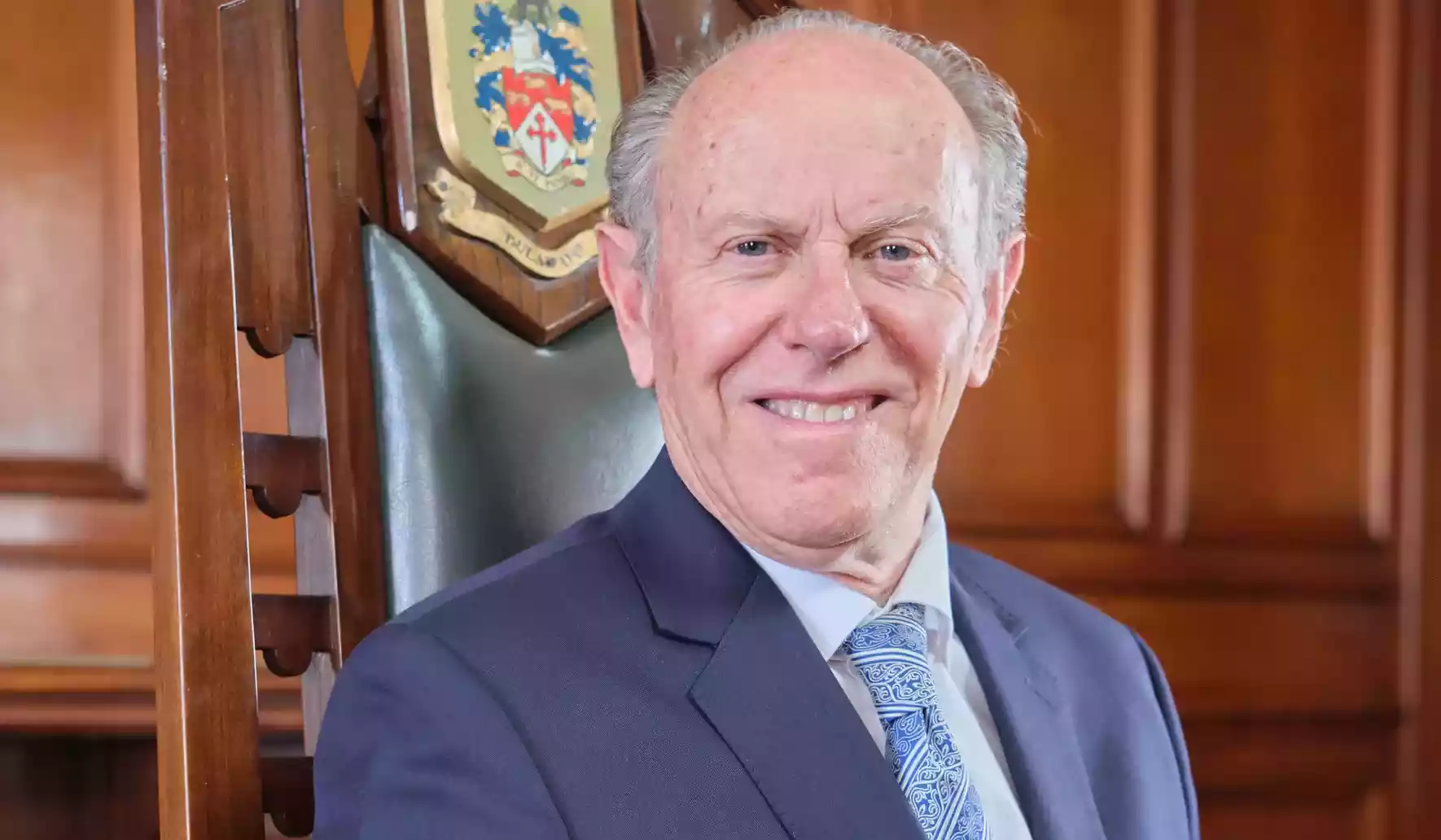
CLOTHING maker and retailer Edgars Stores Limited recently appointed Sevious Mushosho (SM) as its chief executive officer, taking over from Tjeludo Ndlovu, who quit after three years at the helm. Our business editor Mthandazo Nyoni (MN) sat down with Mushosho who faces mission impossible to make Edgars relevant in Zimbabwe again. Find below excerpts of the interview:
MN: What is your vision for Edgars Stores Limited? How do you intend to turnaround the fortunes of the company?
SM: My vision is to make Edgars the top departmental store in Zimbabwe. We will get there by going back to the foundation upon which Edgars was build, which is offering our customers exclusive high-quality fashion consistently. We will need to expand the range offerings to include household goods.
MN: What are your short, medium- and long-term goals?
SM: In the short term, we must stabilise our supply chain and improve our merchandise offering to our customers. The focus will be on improving quality of our garment offerings, expanding our product ranges through acquisition of new suppliers. Medium term, we intend to identify new retail sites and revamp existing stores to give our customers a modern store with great layouts and lighting. In the long term, we are planning to expand manufacturing operations in Bulawayo through acquisition of modern plant and machinery as well as partnerships with other local manufacturing companies to boost our capacity.
MN: The company has relocated its headquarters from Bulawayo to Harare. What necessitated this move?
SM: The move was necessary as we have 15 stores to manage in Harare than four in Bulawayo. With competition increasing each day, management are able to respond faster and more effectively in Harare where most stakeholders and partners are located. Speed of response is everything in our industry.
MN: Are you also going to relocate the Carousel Manufacturing division?
- Edgars Borrowdale relocates to bigger space
- Edgars Borrowdale relocates to bigger space
- New Edgars boss dreams big
- Edgars bullish on turnaround strategy
Keep Reading
SM: No. Bulawayo is the perfect location for our manufacturing, and we have several of our local suppliers based there. We have invested heavily in Bulawayo, and we will be putting more investment to increase capacity and assist other local manufacturers there to grow too.
MN: For you to achieve your vision you need money. How much are you planning to invest into the business?
SM: We are planning to invest at least US$5 million to fund new plant and machinery, new retail sites, new ERP (enterprise resource planning) system and stores revamp in the next one year.
MN: What is your current staff complement? Any plans to increase this figure?
SM: We have over 900 employees, and we expect them to grow to over 1 500 by end of December 2024 as we expand our manufacturing operations to service local and export markets.
MN: As a business, do you feel threatened by the emergence of pavement or car boutiques or second-hand clothes(mabhero) trade?
SM: Our offering is targeted at customers who value exclusive high-quality fashionable garments sold in a world class departmental store at flexible payment terms. Such customers may not buy from those car boutiques and ‘mabhero’.
MN: Is there a future for the clothing sector in Zimbabwe given the prevalence of cheap imports as well?
SM: Yes, the future is bright for the clothing sector. We must prioritise what our customers want and give them. Our people deserve decent healthy clothing and accessories. Millions of Zimbabweans will be so proud to have a world class departmental store near their homes offering decent quality clothing. We must dignify the retail sector and run away from the mushrooming ‘mukoto’ lane boutiques, car boots boutiques and street runners, who have no standards and do not contribute to the fiscus.
The growth of the clothing retail sector also brings growth opportunities for downstream industries of clothing manufacturers, fabrics, and trims manufacturers in the country. If government can further protect the industry and incentivise local manufacturers to compete with the rest of the world, we will see a massive resurgence of the entire clothing sector.
MN: How do you intend to empower the locals?
SM: As already mentioned above, we will be partnering with other local manufacturers to boost our capacity and range offering. More work for manufacturers means more people are employed and contribute to our nation’s productivity.
Recently, we have identified local upcoming designers to show case their talent during our fashion extravaganza show and we gave them an opportunity to sell their merchandise through our selected stores. We intend to continue empowering the young designers. We will also be running a clothing mechanist training programme at Carousel in Bulawayo to give our local young people clothing sewing skills and to maintain the clothing manufacturing skills in the country.
MN: Apart from high inflation and currency volatility, what other major challenges are you facing as a player in the clothing industry?
SM: Main challenge apart from what you mentioned above is duty on imported fabrics that cannot be manufactured in the country, which makes us less competitive. Another challenge is that of the mushrooming of boutiques, who are selling smuggled merchandise, do not pay tax and have small overhead structures making it easy for them to sell cheaper. The government can do more in this area to create sanity.
MN: Are there any plans to venture into the export business in the near future? If so, which countries are you targeting?
SM: Yes, mainly targeting exports into South Africa where we have existing partnerships.
MN: According to the group's results for the 26 weeks ended July 9, 2023, total units sold dropped 14,8% to 1,09 million compared to the same period last year. Again, profit before tax plummeted 70% to ZW$4 billion. What do you attribute this performance to?
SM: This was mainly because of currency instability experienced during the second quarter, which saw most of our customers losing their disposable incomes.
MN: Nearly 80% of local transactions are in United States dollars (USD). As a company, have you recorded an uptick in greenback business? If so, what is the ratio compared to the Zimbabwe dollar business?
SM: Our current ratio is 80:20 in favour of USD.
MN: You have said that the group seeks to expand its geographic footprint through the opening of new stores in strategic locations. How many stores are you targeting to open and what is the quantum of investment?
SM: We are planning to open at least six new stores during the first half of 2024 for an investment of US$1,5million.
MN: Any plans to expand to foreign markets?
SM: Apart from exports into South Africa planned for next year, we have no plans to expand into foreign markets.






